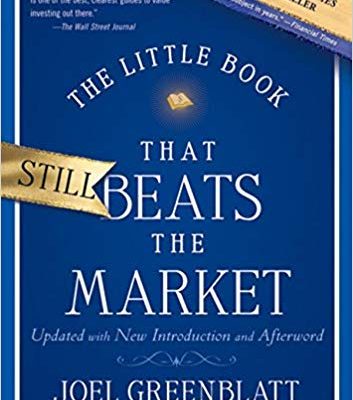Review The Little Book That Still Beats the Market
by JOEL GREENBLATT
Description
Back in 2005, Joel Greenblatt introduced a book that covers smart investment strategies and methodologies on how to defeat markets. Even up to this date, The Little Book that Beats the Market remains to be one of the most important contributions to the financial literature. This book proposes that investors can outsmart and completely defeat financial frameworks through simple acts of formula application that identifies viable businesses up at inexpensive value.
With recent developments and revision, this book still carries the weight of its promise as it delivers more intensive research findings from its original copy. It now covers figures and evaluation of financial crises and model performance through the end of 2009. As this book proves its thesis, it further studies factors that often lead to successful investment and how a lasting and research-based formula makes firm investment automatic.
Even though it appears to be technical, the discussions and lessons were all carried out using elementary mathematics, straightforward delivery, and humorous tone. The author introduced techniques to ace the market and advanced managers, all while highlighting the lasting effect of the formula regardless of how many individuals utilize it.
The formula is simple, a no-brainer for most advanced investors, but knowing the essence and importance of it is the true key to wealth and success. This book does not provide solutions that may become obsolete in the future. Instead, it renders a time-tested strategy that flexibly appeals to different market situations, whether good or bad.
About the Author
Joel Greenblatt founded Gotham Capital, to which he also acts as a managing associate of the firm. Presently, he works as a professor at Columbia Business School. Prior to his current posting, he worked as a chairman of the board for Fortune 500. He is also one of the people who established the Value Investors Club website.
Table of Contents
Title Page
Copyright Page
Dedication
Acknowledgments
Foreword
Introduction
Introduction to the Original Edition
- Chapter One
- Chapter Two
- Chapter Three
- Chapter Four
- Chapter Five
- Chapter Six
- Chapter Seven
- Chapter Eight
- Chapter Nine
- Chapter Ten
- Chapter Eleven
- Chapter Twelve
- Chapter Thirteen
Step-by-Step Instructions
Afterword to the 2010 Edition
Appendix




